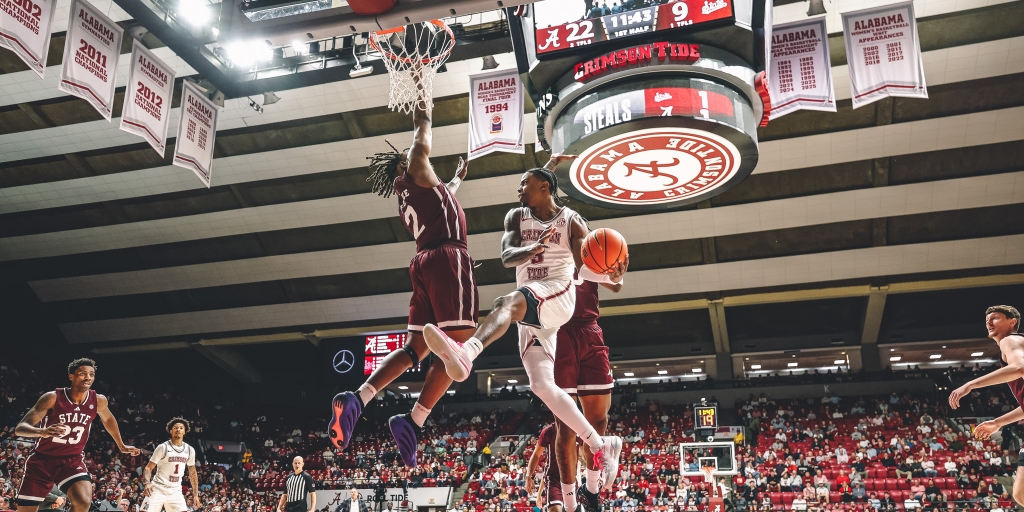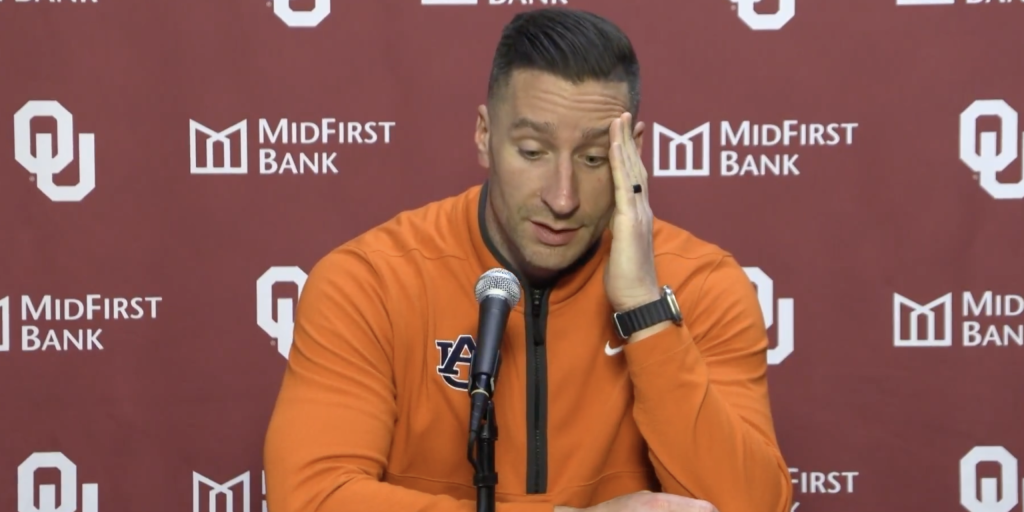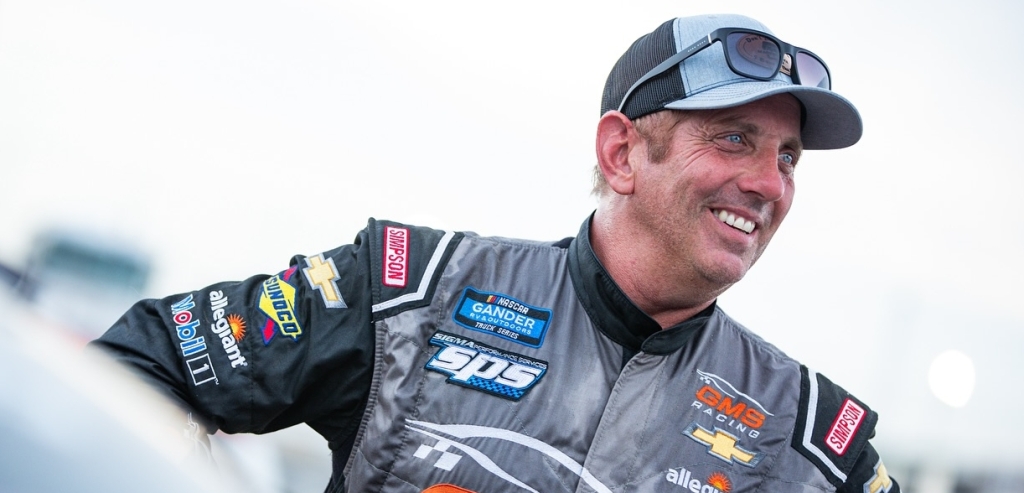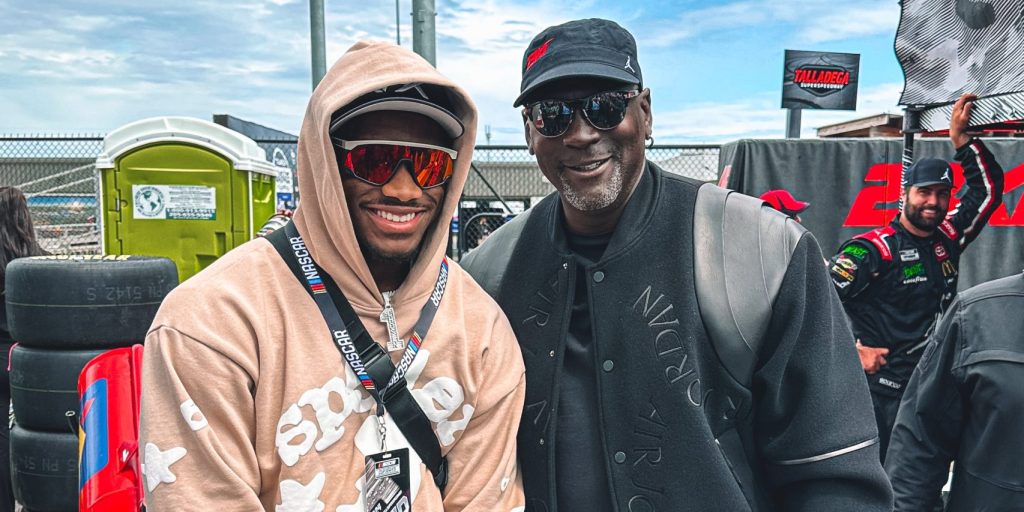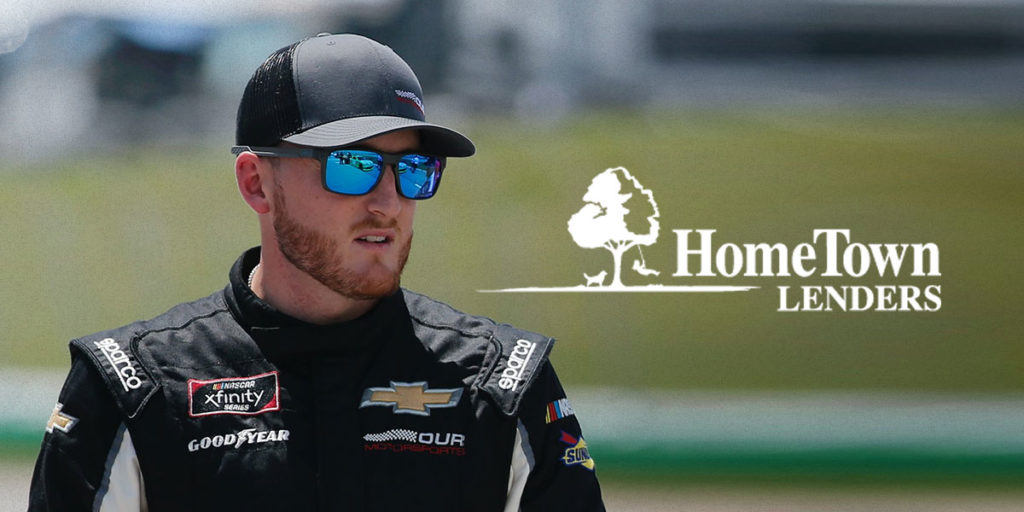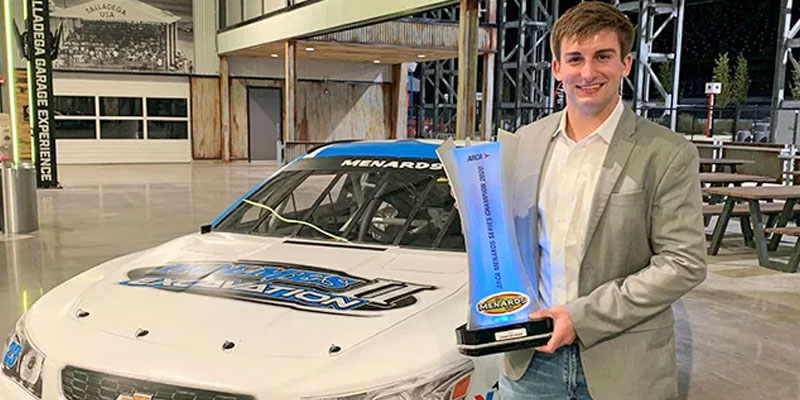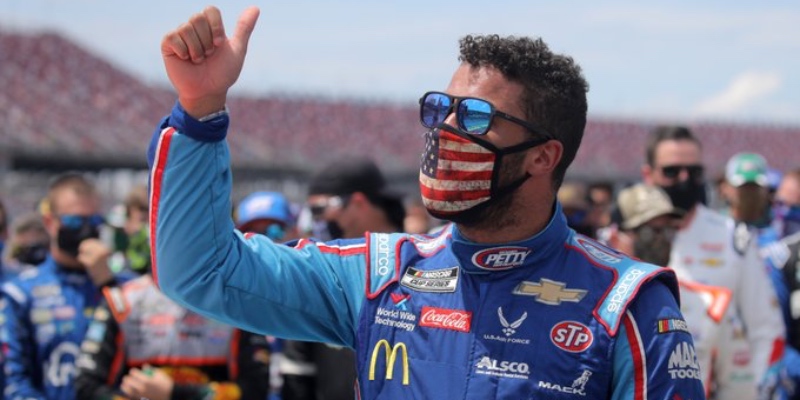Alabama’s own Red Farmer, along with six-time Talladega winner Dale Earnhardt Jr. and Mike Stefanik, make up the inductees into the NASCAR Hall of Fame Class of 2021.
The Hall of Fame’s 12th class marks the first with three members. In addition, Ralph Seagraves is recipient of the Landmark Award for Outstanding Contributions to NASCAR.
Farmer, 87, was born in Hialeah, Florida, but is better known as an original member of the famed “Alabama Gang” after relocating and teaming up with fellow Florida-transplants Bobby and Donnie Allison and Alabama’s Neil Bonnett. Farmer, who is estimated to have more than 700 career victories, is still competing on local short tracks and is clearly moved by joining the NASCAR Hall of Fame.
“I had to catch my breath there for a minute,’’ a smiling Farmer said. “This is the biggest honor you could ever get. … I started down there on the beach in 1953. I’ve been in NASCAR a long time and got to run against a lot of great drivers.’’
Farmer’s accolades include four NASCAR championships: the 1956 NASCAR Modified title, along with the 1969, 1970 and 1971 NASCAR Late Model Sportsman championships (today called the NASCAR Xfinity Series). He was named one of NASCAR’s Greatest 50 drivers (during 1998’s 50th anniversary) and won four Most Popular Driver awards (two while in the Late Model Sportsman Division and two in the NASCAR Modified Series – voted on by competitors). Farmer is also a member of the International Motorsports Hall of Fame.
Speaking with media after his selection, Farmer told a story about making his first NASCAR start in 1953 and driving the race car (a Hudson)350 miles from his home in south Florida to Daytona Beach with a toolbox in the car.
He raced against some of NASCAR’s earliest superstars, such as Lee Petty, Fireball Roberts, Tiny Lund and Joe Weatherly. And today he suits up at short tracks around the country primed to take on the sport’s next superstars.
Farmer smiled at the thought of his legendary career, spanning nine decades, and earning that most honorable position in the NASCAR Hall of Fame.
Located in Uptown Charlotte, North Carolina, the NASCAR Hall of Fame is an interactive, entertainment attraction honoring the history and heritage of NASCAR.
As a result of the COVID-19 pandemic, the NASCAR Hall of Fame voting panel met online to debate and vote on 15 nominees for 2021 induction and five nominees for the Landmark Award. The group is the first to vote on two different Hall of Fame ballots.
Ten nominees appeared on the Modern Era ballot, which was selected by the traditional Nominating Committee. The same committee selected the five Landmark Award nominees. The Pioneer ballot, which included five nominees whose careers began in 1961 or earlier, was selected by a new Honors Committee. Beginning with the Class of 2021, each Hall of Fame class will feature two inductees from the Modern Era ballot and one from the Pioneer ballot.
Earnhardt Jr. received 76% of the Modern Era ballot votes, Stefanik received 49%. Ricky Rudd finished third, followed by the late Bonnett. Farmer received 71% of the Pioneer ballot votes. Hershel McGriff finished second.
Each class is selected by the Voting Panel, which expanded to 65 members this year. They include representatives from NASCAR, the NASCAR Hall of Fame, track owners from major facilities and historic short tracks, media, manufacturers, competitors (drivers, owners, crew chiefs), recognized industry leaders, the reigning NASCAR Cup Series champion (Kyle Busch) and a nationwide fan vote conducted through NASCAR.com. Seven voters on the Honors Committee – Richard Childress, Rick Hendrick, Ron Hornaday Jr., Dale Jarrett, Roger Penske, Darrell Waltrip and Rusty Wallace – participated for the first time. In all, 63 votes were cast. The accounting firm of EY presided over the tabulation.
Results for the NASCAR.com Fan Vote were Bonnett, Earnhardt Jr. and Farmer. In addition to Earnhardt Jr. and Stefanik, the other Modern Era ballot nominees included Neil Bonnett, Jeff Burton, Carl Edwards, Harry Gant, Harry Hyde, Larry Phillips, Ricky Rudd and Kirk Shelmerdine. The other Pioneer ballot nominees were Jake Elder, Banjo Matthews, Hershel McGriff and Ralph Moody.
Nominees for the Landmark Award included Janet Guthrie, Alvin Hawkins, Mike Helton and Dr. Joe Mattiolli.
Here is a closer look at the 2021 inductees:
Red Farmer
Red Farmer’s career is one long series of immeasurable accolades. For instance, it’s unknown just how many wins Farmer has. One thing is for sure: it’s a lot … somewhere north of 700. His passion for the sport is likewise immeasurable. After all, he continues to race, even as he approaches 90 years of age. But the record books do have a few things that are black-and-white and proof positive about this member of the Alabama Gang. He collected three consecutive championships in NASCAR’s Late Model Sportsman division from 1969-71, long after he won the Modified title in 1956. Though he preferred racing in the Late Model Sportsman division, Farmer did run 36 Cup Series races, with a best finish of fourth (twice). In 1998, Farmer’s many successes – clearly too many to officially count – landed him on the list of NASCAR’s 50 Greatest Drivers.
Dale Earnhardt Jr.
Dale Earnhardt Jr., a third-generation NASCAR champion in a family synonymous with the sport, is perhaps the most popular driver in NASCAR history. The son of “The Intimidator,” Earnhardt Jr. made his own path and served as the face of NASCAR as 15-time Most Popular Driver. He began his career at family-owned Dale Earnhardt Inc. (DEI), winning back-to-back Xfinity Series titles and 13 races in two full-time seasons. He quickly moved to the Cup Series, where he won in his 12th career start. Like his father, Earnhardt Jr. was a master of the draft and thrived in restrictor plate racing. Ten of his 26 Cup victories came at Daytona and Talladega, including Daytona 500 wins in 2004 and 2014. In 2006, Earnhardt founded JR Motorsports, adding team owner to his resume. The team has three Xfinity Series championships and 47 wins. Earnhardt is an analyst for NBC Sports and hosts the popular podcast “Dale Jr Download.”
Mike Stefanik
At the very top of the list of all-time NASCAR championships sit two men: NASCAR Hall of Famer Richie Evans and Mike Stefanik. Each tallied nine in their exemplary careers, with Stefanik’s coming in both the NASCAR Whelen Modified Tour and NASCAR East Series. Seven of his titles came in his primary racing series – the NASCAR Whelen Modified Tour. In 2003, he was named one of the Tour’s 10 Greatest Drivers, an obvious choice if there ever was one – Stefanik holds the all-time series record in championships, wins, poles, top fives and top 10s. Stefanik won two championships consecutively in the NASCAR East Series, in 1997-98. That, along with a win total that ties for ninth on the all-time series list, earned him a spot on the Top 10 Drivers of the First 25 Years of the NASCAR East Series list in 2011. In addition, Stefanik spent one full-time season in the NASCAR Gander Outdoor & RV Truck Series – and it was a successful one. He captured the Rookie of the Year Award in 1999.
Ralph Seagraves, recipient of the 2021 Landmark Award for Outstanding Contributions to NASCAR
Ralph Seagraves’ life – and NASCAR’s world – changed the moment he met NASCAR Hall of Famer Junior Johnson. In the late 1960s, Seagraves, an official with R.J. Reynolds Tobacco Co., was searching for a means to market cigarettes after the federal government banned RJR’s products from advertising on television and radio. Johnson, ever the entrepreneur, had an idea. How about RJR sponsor his cars? Seagraves had a bigger idea: Why not sponsor NASCAR’s top series? And so, in 1971, for the first time since its inception in 1949, NASCAR’s premier series had major corporate backing. The NASCAR Winston Cup Series was born. The partnership helped NASCAR launch into the national spotlight, and created a bedrock of stability for the next three decades. RJR’s Winston brand sponsored NASCAR’s top series for more than 30 years, ending in 2003. Under Seagraves leadership, RJR helped racetrack operators refurbish facilities, many of which were short tracks that ran developmental NASCAR Winston Racing Series races.
(Courtesy of Alabama NewsCenter)





